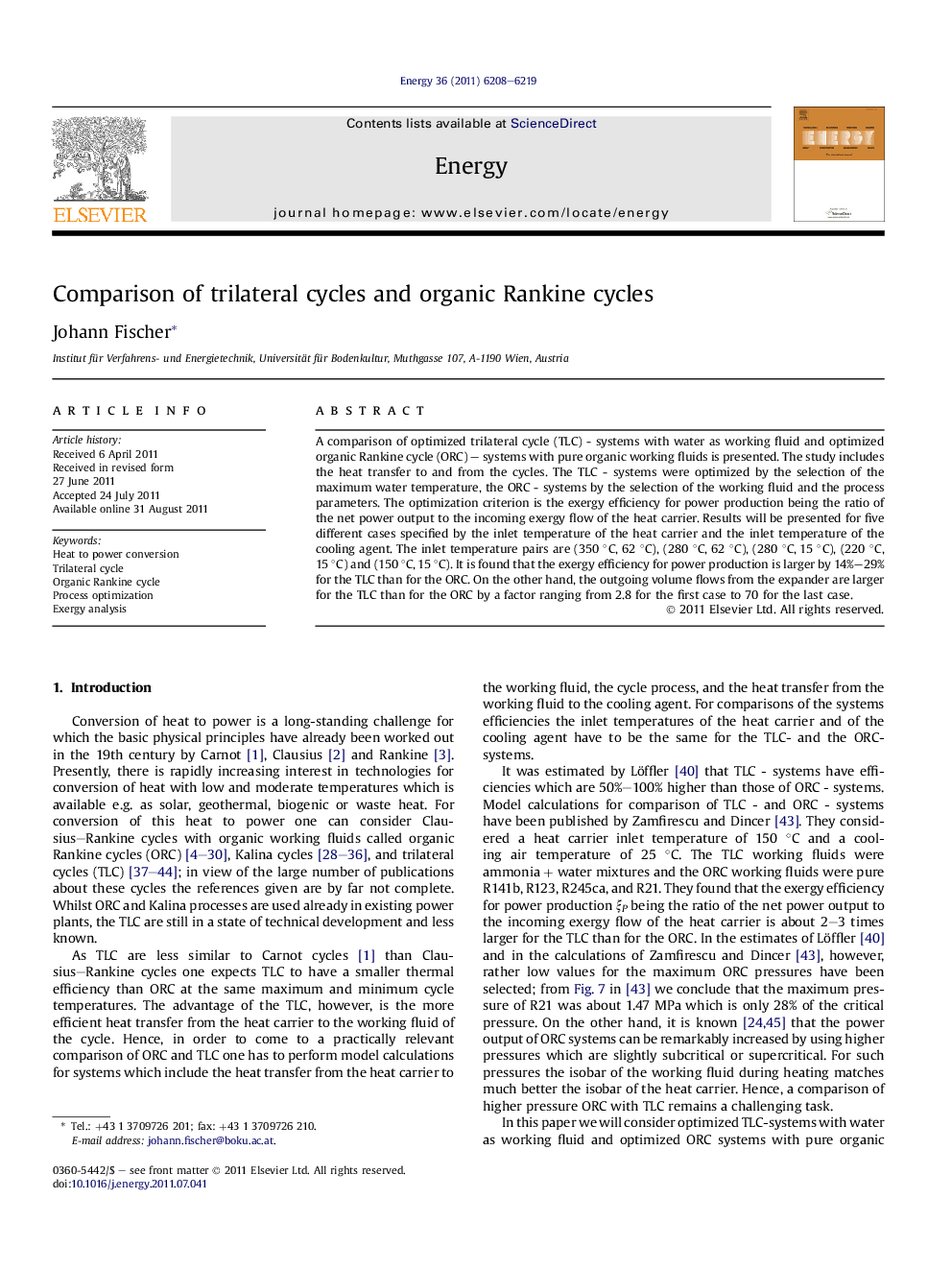| Article ID | Journal | Published Year | Pages | File Type |
|---|---|---|---|---|
| 1734027 | Energy | 2011 | 12 Pages |
A comparison of optimized trilateral cycle (TLC) - systems with water as working fluid and optimized organic Rankine cycle (ORC) – systems with pure organic working fluids is presented. The study includes the heat transfer to and from the cycles. The TLC - systems were optimized by the selection of the maximum water temperature, the ORC - systems by the selection of the working fluid and the process parameters. The optimization criterion is the exergy efficiency for power production being the ratio of the net power output to the incoming exergy flow of the heat carrier. Results will be presented for five different cases specified by the inlet temperature of the heat carrier and the inlet temperature of the cooling agent. The inlet temperature pairs are (350 °C, 62 °C), (280 °C, 62 °C), (280 °C, 15 °C), (220 °C, 15 °C) and (150 °C, 15 °C). It is found that the exergy efficiency for power production is larger by 14%–29% for the TLC than for the ORC. On the other hand, the outgoing volume flows from the expander are larger for the TLC than for the ORC by a factor ranging from 2.8 for the first case to 70 for the last case.
► TLC delivers work by a flash expansion of pressurized boiling water. ► ORC expands high pressure vapour or supercritical fluid in a turbine. ► Heating in TLC matches cooling of heat carrier better than in ORC. ► Power production in TLC is higher than for ORC between 14% and 29%. ► Water volume flows become very large in TLC after expansion to low temperatures.
